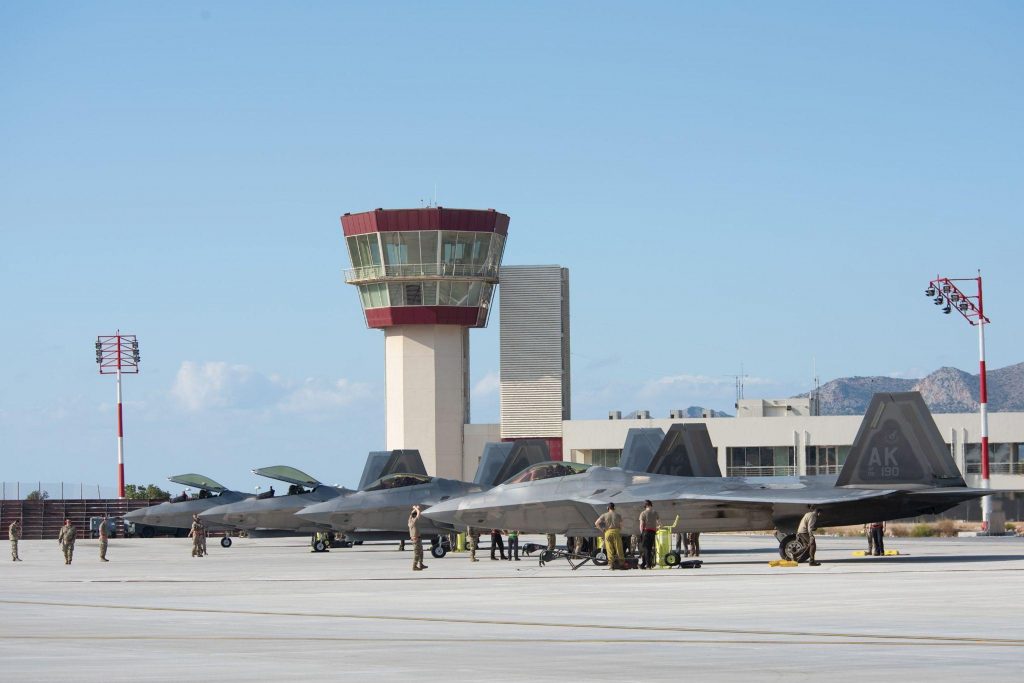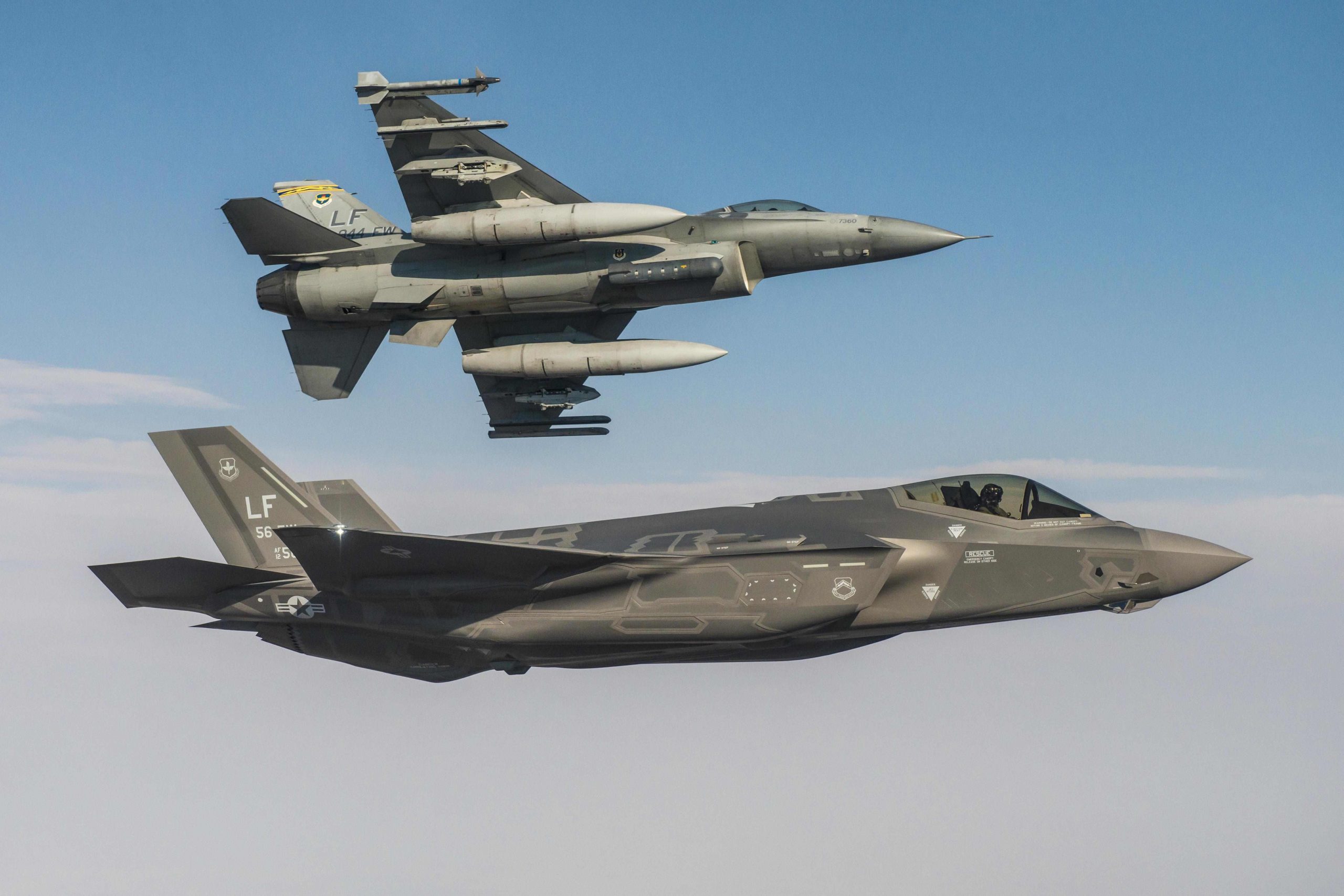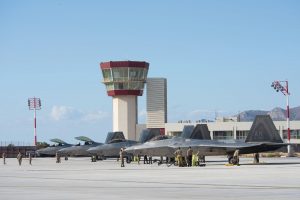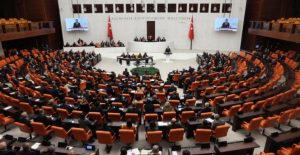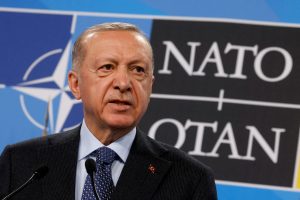Mr. Barkey has served on the State Department Policy Planning Staff, working on the Eastern Mediterranean, the Middle East, and intelligence-related issues.
He emphasized that Turkey’s initial reluctance was merely a strategic game, and despite the conditions set, the Biden administration had always intended to sell F-16s to Turkey. However, Mr. Barkey pointed out that Turkey’s decision to link its approval of Sweden’s NATO accession to the F-16 deal was unnecessary and backfired. Erdogan’s delaying tactics cost Turkey prestige as well as upsetting both European and U.S. lawmakers.
What is your overall assessment of this deal and its implications for the parties involved?
Everybody knew the Turks would say yes in the end. Basically, and they did was play a losing game, because they got nothing at the end. And they are the ones who created the link between the F-16s and Sweden’s accession. This was never an issue, as the Biden administration had made it very clear from the beginning that they wanted to sell the F-16s to Turkey.
Because Turkey is not going to get the F-35s, it needs to get the F-16s because it is a NATO Air Force. What I mean is that you need a NATO Air Force that is competent, and the Turkish Air Force has been in terrible shape lately, because it hasn’t had new aircraft in a while and many of its aircraft have not been updated. So it was an unnecessary linkage, because first Turkey said no to Sweden, then it imposed conditions which the Swedes accepted for the most part, and then, once they had that, they said, well, you know, we want the F-16s.
But the Senate had started to get upset at the Turks. And the Turks created the conditions by saying ‘We want the F-16s before we accept Sweden.’ So, at the end of the day, Erdogan basically got nothing. Turkey lost an enormous amount of prestige and made people angry in both Europe and the United States. And, as I said earlier, everybody knew that Turkey was eventually going to say yes.
To clarify, do you believe that Turkey’s decision to play this game with Sweden gave Congress the opportunity to extend its own demands and impose additional conditions?
First of all, Sweden made a request to join NATO. And all Turkey had to do, if it had something to demand from the Swedes, was talk to them, and the Swedes were initially quite open to a deal. But then the Turks set some conditions that were extraordinarily difficult, like extraditing people, etc. which the Swedes could not do. Now, Congress didn’t get involved in this until the process had been ongoing for a very long time. Now, if Turkey had said yes to Sweden on day one, or let’s say 30 days after it made its request, we wouldn’t be talking about this issue today, because Congress would not have intervened in the F-16 deal.
What rationale could underpin President Erdogan’s decision-making process? It looks like we got the exact deal that was agreed on at the Vilnius Summit. So, why did he keep dragging his feet, if he had nothing to gain from the delay?
He always thought he could get something out of it. Erdoğan always thinks he knows negotiations better than everybody else. He thinks that by creating a crisis, he increases his stature in the world. I mean, people talk about him; he becomes an important person. First and foremost, Erdogan is more interested in promoting himself on the international scene. He is very anxious to be seen as one of the most important leaders in the world.
I think that, despite having been in power for all this time, he still doesn’t understand how Europe and the United States work and operate. And because he’s used to pushing people around in Turkey, where everybody does what he wants, he thinks the rest of the world will do the same. I think he’s very unrealistic; that’s the only way I can explain it.
Look at the S-400 decision and it’s the same thing. He was told by the United States in very clear terms, ‘If you buy the S-400s, we’ll kick you out of the F-35 program.’ But he knew better. He thought the United States would make the threats, then give in. He was very surprised when it didn’t. Of course, the United States has done what the Turks have wanted many times, and maybe he’s got used to that. But the S-400 was a very important issue for NATO, the F-35 program, and the United States. He didn’t believe the United States, and Turkey ended up losing a huge amount of money. He lost the F-35s and the servicing. Turkey was going to service the F-35s in Eastern Europe, and Turkey would have made a lot of money out of it.
It was probably one of the most catastrophic decisions he’s made, and I don’t see any way for it to work out well for him. I mean, I see on Turkish websites that Victoria Newland said, ‘Well, you know if we can solve the S-400 issue, we’ll get Turkey back on the F-35.’ I don’t see how that’s going to be resolved, because Turkey won’t be able to rid itself of the S-400s, not as long as Putin is in Moscow.
Why do you believe that?
Because, first of all, the Russians made money out of this program, Second, what is Turkey going to do with the S-400? Send them back? Putin has said no. They can’t send them to another country because, again, Putin has made that very clear. I’m sure the contract has multiple provisions that say you cannot transfer the S-400s anywhere else.
Because remember what happened with Cyprus and its S-300s? Right? Europe and the United States forced the Cypriots to give up the S-300s. And where did they go? They went to Crete. And on Crete, every single NATO Air Force and others, including the Israelis, got to train in dealing with the S-300s. And having seen that, Russia said you can’t transfer them elsewhere, because they don’t want the S-400s falling into NATO hands. So that’s why I’m sure there is some agreement or provision that says you can’t transfer them, because otherwise the Turks would probably have found some place to send them to.
Congress has also incorporated Greece into the equation. Reportedly, Secretary Blinken assured lawmakers in a letter that the State Department would intervene if Turkey used the new F-16s for overflights in the Aegean. Are these assurances just words, or tangible security guarantees?
Well, I haven’t seen this letter, so I don’t know if it’s true or not. The truth of the matter is that the F-16s we’re talking about will take a few years to get to Turkey. They’ll probably arrive the same time Greece gets its F-35s. So, the balance of power in the Eastern Mediterranean, or the Aegean, is now shifted in favor of Greece.
So, I don’t think the Turks are going to do anything with the F-16s. And, whether Blinken sent that letter or not, I think it’s very clear the United States is not going to put up with Turkey messing around in the Aegean again. And Turkey is not in a position to play around with the F-16s, because at the end of the day they need parts, they need servicing, and all these things are dependent on the United States. So, for the time being at least, I’d say Erdogan has learned his lesson.
Does all the drama surrounding the sale of the F-16s create a precedent, do you think? Meaning that every major arms sale to Turkey will be subject to scrutiny from now on? Might this deal embolden lawmakers to be more transactional and make policy-change demands that could span Syria to Russia and Iran?
I think yes and no. I think there will probably always be Congressmen or Senators who are going to say, when an arms deal comes up, ‘Look, you need to tell Turkey not to do something in Syria or not to do something else.’ If stuff like this is happening, any deal is going to be a little conditional on what’s going on. I think the big issue now is mostly Syria and sanctions busting. But, again, when is there going to be a big arms sale? Let’s face it, nobody cares about ten tanks or ammunition. Nobody will make a big fuss about that. So, it depends on when the Turks put another big purchase before Congress or the American government.
They won’t be doing that again any time soon, that’s for sure. I don’t see the Turks buying much in the near future. And they are also trying very hard to use a lot of their military equipment at home. There are all kinds of things going on there, and I suspect their focus is going to be mostly domestic. And what they will be buying is parts for equipment they bought in the past, like the F-16s or other aircraft, or for tanks.
But let’s say three, four, five years from now. Say there’s a big deal in the making and Turkish-American relations are in difficulty because of Syria, etc. Well, that’s when you might see people making demands. What usually happens in situations like this is that the US administration has a chat behind closed doors and tries to change the Turk’ behavior in the hope that things will work out somehow.
